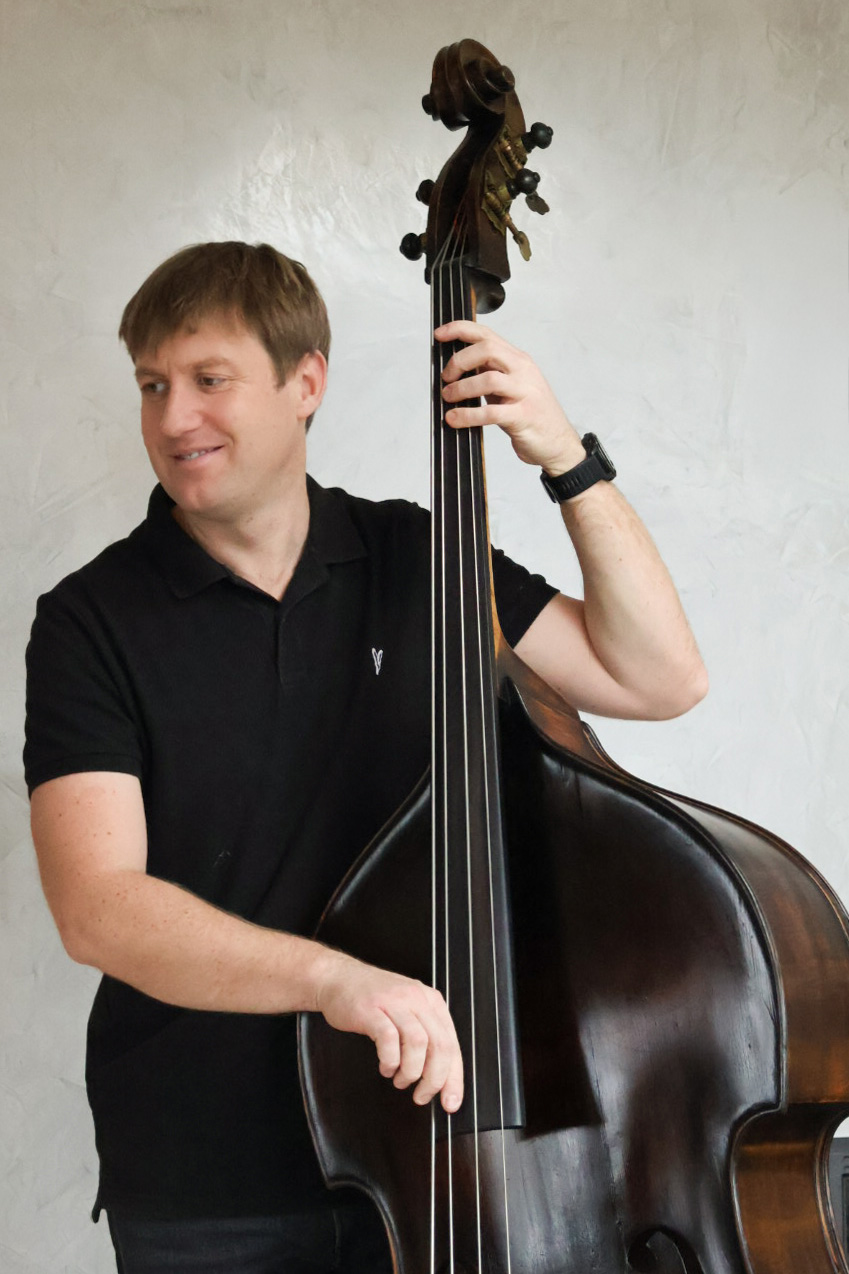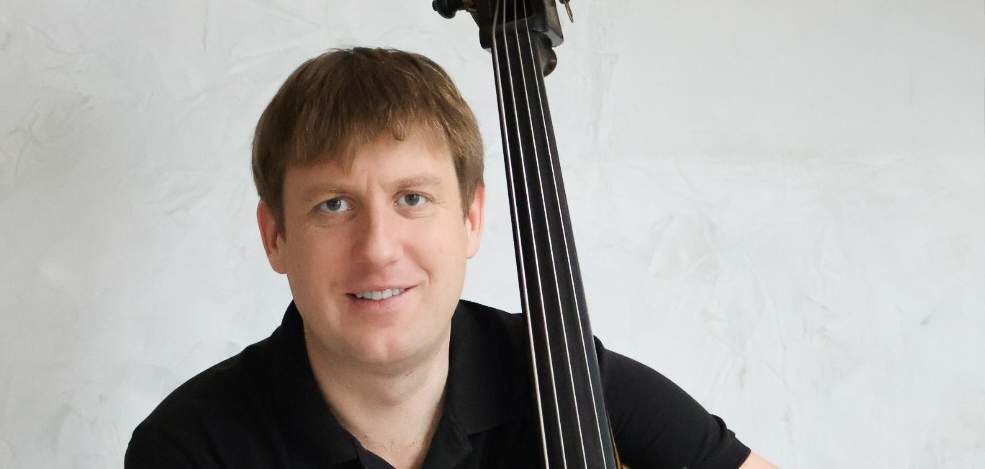“It’s like riding the bike, you’re free to do whatever you want and choose the paths you desire – the lack of stability pins you down to Earth.” Polish double bass player and jazz musician Piotr Górka (39) has played thousands of concerts. But being a musician demands more from a person than what the audience sees.
“The first concert that I’ve played abroad was when I went on a two-week tour to Italy with a folk band. I was 15 at that time. My first real, paid concert I’ve played came about when I was still a student. I would jump at opportunities to play at the beginning of my career, but I was free to pick and choose, and would do that too. I’ve played thousands of concerts at this point, in Poland and all across the globe. I don’t think I have a personal favourite or one concert I’m most proud of. Every time I play, it’s different, in a good way, and just unique. It doesn’t matter if I play in a small club in Kraków or a gig in Madrid or New York. It’s a bit cliche, but the people in the audience truly matter. I also get inspired by the people I play with. Everyone has a different style of playing, and everyone does it completely differently. Yet it makes so much sense; it’s just perfect. I did have a missed opportunity regarding concerts – I was invited to a six-month music contract on a big passenger ship in the Caribbean and around the world. It could have been a great adventure.”
“Everyone thinks playing is cool, you get on stage, play for an hour and get paid. What people don’t see is the work you have to put in to be able to play, and I’m not talking about the years of work it takes to learn how to play the instrument. It’s arranging the concert, organising it, figuring out the repertoire, getting there, technical aspects, rehearsals, sound systems, hotels and all the logistics. When I get off the stage, I am satisfied. I make people happy, but the perspective of driving home all night and being tired is what gets to you.”
“After a series of autumn concerts, the burnout hits you like a brick. There aren’t many concerts around the end of the year – December, January and February. That’s when you start to wonder what will come next: if there’s a budget for culture, if the cultural institutions will be able to host and sell gigs. Don’t get me wrong; I love what I do, and it gives me a lot of energy and strength. But in moments like today, I wonder if I wouldn’t be better off with a small guesthouse on a remote, hot island.”

“To relax and come back to my senses, I do sports. I flee to nature, ride my bike, and run in the forest. After a few hours, I come back with a clean head and can work all over again. Riding a bike – that’s a bit like playing. I’m free and have many paths to choose from. That’s what it’s like on stage: I have lots of room to improvise.”
“On top of that, I manage my bands, all ten of them. I sell the bands I play in myself; that’s what I do as a manager. I work with people I’ve known for years. You have to like each other: you’re on stage for 90 minutes, but travel together for hours. It’s actually not that easy. All I ever do is music, either as art or as a business. I feel a bit weird when I’m not playing or not on tour, even if I don’t do it for a week. It might seem funny, but that’s the truth. Music is addictive, but it’s the best addiction you could have.”
“Yes, you’re doing what you love, but it all lacks stability and can fall over any minute, like during the pandemic, when I was completely out of work. I often don’t see my family for long periods of time, I spend hours behind the wheel and cross around a hundred thousand kilometres each year. I never know what’s to come in the next few months that are ahead, but it usually works out in my favour.”
“I feel best when the audience has fun. They know what’s going on, and they know you’re there to make them happy. What’s funny is that I rarely ever get criticised. I don’t remember the last time that happened, but you have to keep going with the flow; everything must come naturally. You get criticised, learn, shake it off, and play again and again. There’s no way around it. After all, it’s a career I’ve been pursuing for over 20 years. Stable or not, I couldn’t see myself in a big corporate machine, that’s simply not who I am.”
[jetpack-related-posts]
